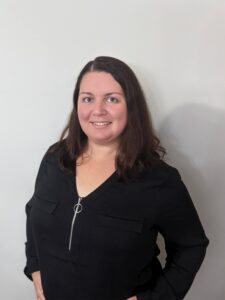18/02/2025
Ottawa, Ontario — Tuesday February 18, 2025

Hazel Radley’s development has taken some big steps thanks to participating in research at CHEO.
Now 4, Hazel was diagnosed with quadriplegic cerebral palsy at seven months old. She normally uses a walker but recently took part in a research study using the Trexo robotic walker.
Her mother, Melanie Radley, said participating in the CHEO research study helped build up Hazel’s strength as she was required to use the Trexo robotic walker for about 45 minutes per day.
“It’s incredible how life-changing this research is for kids. It makes such a big difference,” said Melanie, referring to studies investigating innovations and technology. “I feel so much hope for all kids with disabilities.”

Families are at the heart of research at CHEO, which is why it launched Research Connection; a permission-to-contact program that will enhance recruitment for studies at the CHEO Research Institute.
As of February 1, 2025, children and youth who receive services at CHEO are automatically included in Research Connection, which uses an “implied consent” model.
This program links more children, youth and families to valuable research opportunities, and it improves equity and access to research, which ultimately improves the quality of research findings.
CHEO is the first acute care pediatric hospital to implement a program like this. The launch of Research Connection follows extensive engagement with family partners, researchers, hospital leaders, and the CHEO Research Ethics Board, along with a detailed legal and privacy review and approval from both the CHEO and CHEO Research Institute boards of directors. This engagement also informed the robust education and awareness campaign to inform CHEO families about Research Connection.
“The CHEO research community is really excited about the Research Connection program and how it will enhance participation and bring research opportunities to more children, youth and families – something our patients and their families have been requesting,” said Dr. Jason Berman, CEO and Scientific Director, CHEO Research Institute, and Vice-President Research, CHEO.
“This past year, CHEO broke into the Top 25 ranking for research hospitals in Canada, and we are confident Research Connection will support even more growth and engagement with research at CHEO. We are proud to be trailblazers with this program.”
The ongoing integration and collaboration across CHEO and the CHEO Research Institute, which leverages the shared instance of health data in EPIC, allows the CHEO Research Institute Data Warehouse team to generate a secure and confidential contact list following an electronic scan of patient records compared to the research study participation criteria.
Before Research Connection was introduced, research teams needed someone from a patient’s direct circle of care – like doctors, nurses or therapists – to ask the patient or family if a researcher could contact them to tell them about a research study.
This naturally created obstacles that limited access and awareness of research opportunities, and it added to an already full mental load for busy health care providers.
Researchers also flagged a lack of equity because families who lived further from CHEO, visited in person less often, or who required less follow-up care could be underrepresented in research studies under the previous recruitment process.
“Not only is it bad for our research…it’s also bad for those kids who don’t get a chance to participate,” said Michelle Larin, research coordinator at the CHEO Research Institute.
Now with Research Connection, approved researchers can contact those on the secure contact list directly by phone, MyChart, or in person during a visit to ask if a patient or family wants to learn about a research study opportunity.
Families can then choose whether they want to learn about the study and whether they want to participate, on a study-by-study basis, without any effect on the care received at CHEO. It’s also easy for patients and families to withdraw from Research Connection if they don’t want to be contacted about research opportunities at CHEO through the program.
“You’re only going to gain…you don’t know until you try,” Melanie Radley said about research opportunities at CHEO.
“It’s only going to benefit kids now and in the future.”
Larin said this new program also ensures families are presented with research when it’s most convenient for them to digest and understand the information.
“We wouldn’t have clinical best practices if we didn’t have the research,” she said.
You can learn more about the Research Connection program at its website.
This article first appeared in the Ontario Hospital Association (OHA) Health System News February 2025 edition.
A French version of the article is available here.
